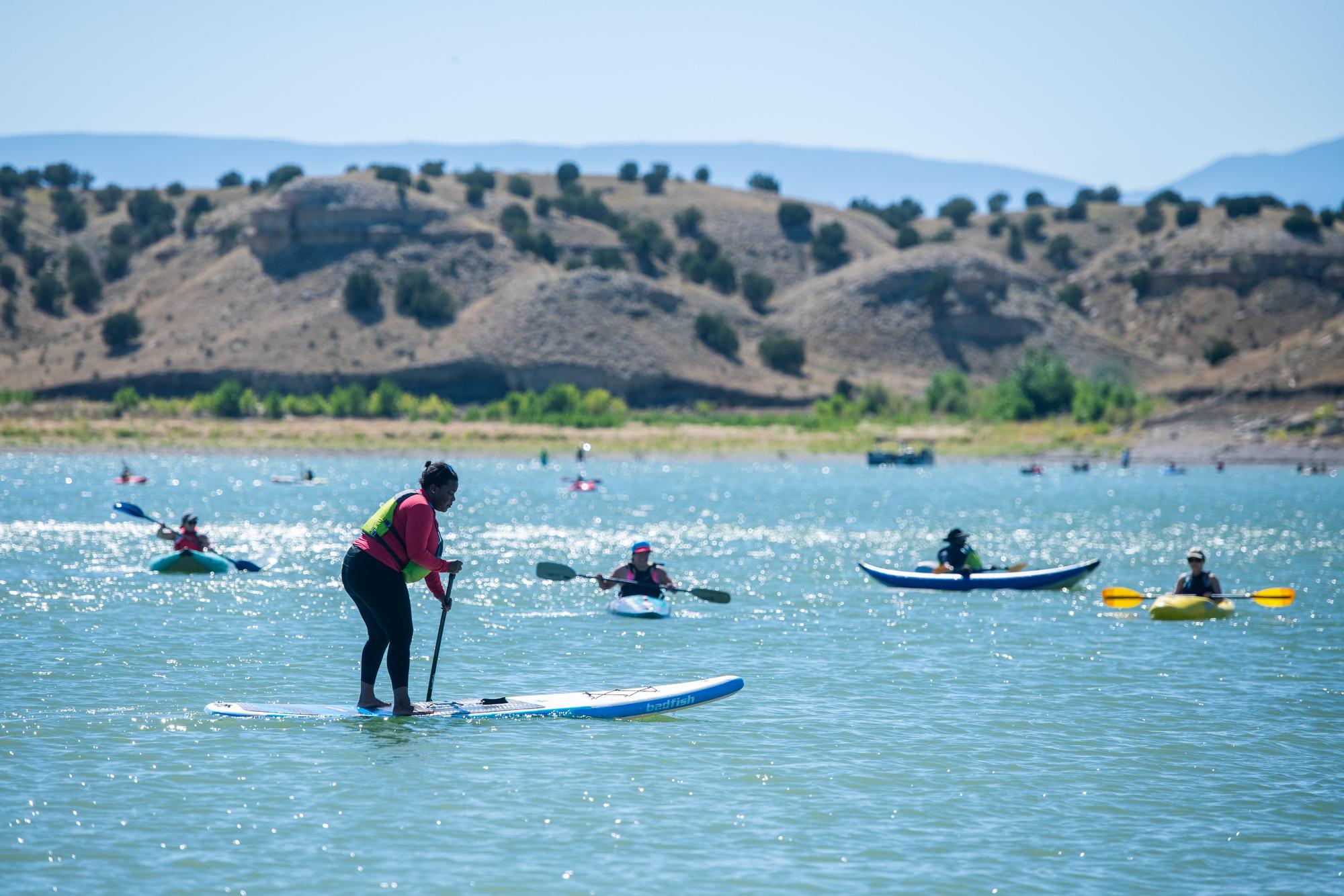
With spring-like weather making Colorado’s bodies of water more enticing, the state Parks and Wildlife Department hopes recent additions to safety plans will save lives in 2023.
Last year was the deadliest year on record in Colorado’s lakes, rivers and streams. The notable year prompted wildlife officials to look for more opportunities to install free life jacket loaner programs at state parks.
“The town of Glenwood [Springs], we worked on a [life] jacket awareness sign that went in at Two Rivers Boat Ramp last summer, with another family of a victim from years ago,” said Grant Brown, CPW’s boat safety and registrations program manager. He added that the agency has more progress to make.
“We have talks working on trying to get a life jacket loaner station put in there on that stretch, the Colorado through Glenwood Canyon, and then having another spot there at the boat ramp,” Brown said.
Many deaths during 2022 came from boaters or paddle boarders who weren’t wearing a life jacket or following other safety protocols when they fell into the water. In one instance, a paddle boarder at Corn Lake in Grand Junction had grabbed a loaner life jacket but was not wearing it when he fell into the water and drowned. He also wasn’t wearing a leash, which keeps people tethered to their paddle boards.
“That's the other thing we're pushing to, is leash wear on paddleboards,” Brown said. “If they're just gonna have the jacket on the board, then wear a leash, and that way if you do fall off, you can pull the board back to get to your jacket and it doesn't just float away from you.”
Brown also worked with state lawmakers this session to pass a bill requiring boating safety courses for minors. SB23-069 passed both chambers and is awaiting the governor’s signature. It requires teenagers between the ages of 14 and 18 to take a boating safety course and have a certificate of completion in order to operate motorboats.
Water conditions at the beginning of the season are dangerous
While the weather outside may feel warm, Brown warns it’ll take longer for water conditions to reflect the heat outside. People who fall into cold water could experience shock from the sudden change in temperature, and experience dramatic changes in breathing, heart rate and blood pressure. The shock from cold water immersion could cause someone to drown.
In addition, water levels in rivers may be higher while snow melts, especially with Colorado’s snowpack currently at 29 percentage points higher than the median for this time of year. Brown said whitewater rafting or kayaking conditions could be treacherous to start this season.
“Check in with the river managers of whatever drainage they're going into to check the gauge height of the river and whatnot,” Brown said. “We always encourage people to paddle with a buddy, paddle with a friend and leave a float plan. Let a friend or someone know when you're gonna plan to go out, and then let them know when you plan to be back.”
Forty people drowned in Colorado bodies of water last year, surpassing CPW’sprevious record of 34 water-related deaths in 2020. The data includes non-recreational water-related deaths, like flash flood victims.









